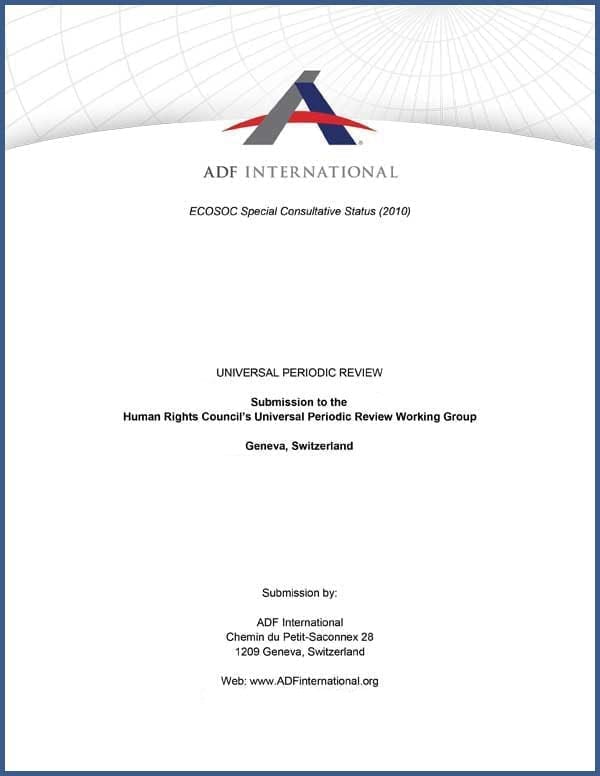UPR
Myanmar (37th Session)
ADF International is a faith-based legal advocacy organization that protects fundamental freedoms and promotes the inherent dignity of all people. As well as having ECOSOC consultative status with the United Nations (registered name ‘Alliance Defending Freedom’), ADF International has accreditation with the Organization of American States, the European Commission and Parliament, and is a participant in the FRA Fundamental Rights Platform.
This report explains why Myanmar must commit to the protection of religious freedom for all people, especially for historically persecuted ethnic and religious minorities.




